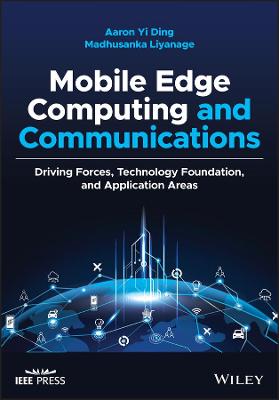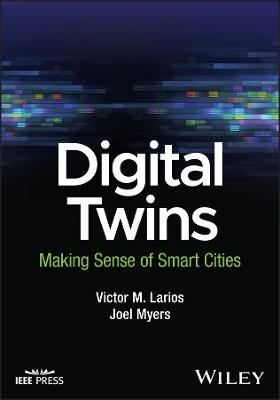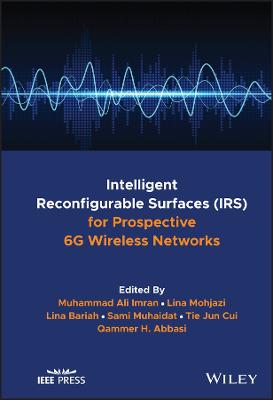Mobile Edge Computing and Communications
 -10%
portes grátis
-10%
portes grátis
Mobile Edge Computing and Communications
Driving Forces, Technology Foundation, and Application Areas
Liyanage, Madhusanka; De Alwis, Chamitha; Ding, Aaron Yi
John Wiley & Sons Inc
01/2025
288
Dura
Inglês
9781119611523
Pré-lançamento - envio 15 a 20 dias após a sua edição
Preface xv
To Our Readers xvii
Acknowledgments xix
Acronyms xxi
Part I Introduction and Edge Applications 1
1 Introduction 3
1.1 Focus of the Book 3
1.2 The Vision of Edge 4
1.3 Stakeholders and Related Paradigms 6
2 Case for Multi-access Edge Computing 9
2.1 Case for Multi-access Edge Computing 9
2.2 MEC Reference Architecture 12
2.3 MEC Standardization 18
2.4 MEC Use Cases and Applications 19
2.5 Related Computing Paradigms to MEC 26
2.6 Comparison with Related Computing Paradigms 28
2.7 Summary 31
3 Edge-Based Video Analytics and Mobile Augmented Reality 33
3.1 Video Analytics Overview 33
3.2 Edge Video Analytics 35
3.3 Edge-Enabled Augmented Reality (AR) 40
3.4 Architecture Options for Mobile Augmented Reality 43
3.5 Applications of MEC-Based MAR 51
3.6 Technical Aspects of MEC-Based MAR 53
3.7 Summary and Outlook 56
4 MEC2 for eHealthcare: Empowering Next-Generation Healthcare Systems 57
4.1 Introduction 57
4.2 MEC Enabled Use Cases 59
4.3 Realizing Use Cases with MEC 62
4.4 Deployment Challenges and Solutions 65
4.5 Conclusion 66
Part II Technology Foundation 69
5 EdgeAI 71
5.1 Overview of Edge AI 71
5.2 Training and Inference in Edge AI 73
5.3 Edge AI in Practice 79
5.4 Summary and Outlook 80
6 Edge Offloading 83
6.1 Motivation and Fundamental Concept 83
6.2 Edge Offloading 89
6.3 Edge Offloading in Practice 92
6.4 Summary and Outlook 94
7 Edge Storage and Caching 97
7.1 Edge Storage 98
7.2 Edge Caching 102
7.3 Edge Caching Towards Information-Centric Networking 103
7.4 Conclusion 105
8 Edge Communication, Hardware and Enabling Frameworks 107
8.1 Advancement of Communication Technologies 107
8.2 Evolution of Communication Networks 110
8.3 Edge Computing Landscape 115
8.4 Edge Computing System Solutions 119
8.5 Edge Hardware and Devices 125
8.6 Edge Accelerators 130
8.7 Industry Frameworks 133
8.8 Concluding Remarks 136
Part III Integration and Driving Forces 137
9 Driving Forces for Edge Integration 139
9.1 Internet of Things Toward Internet of Everything 139
9.2 The Growth of Small Data 140
9.3 AI/ML Based Communication Technologies 140
9.4 Novel Technologies and Applications 141
9.5 Conclusion 143
10 Edge Security 145
10.1 Introduction 145
10.2 Security Threats in MEC 146
10.3 Threat Vectors Related to the Access Network 146
10.4 Threat Vectors Related to the Mobile Edge Network (MEN) 150
10.5 Threat Vectors Related to the Core Network 153
10.6 Architectural Threat Vectors 156
10.7 Security Requirements of MEC 160
10.8 Possible Security Solutions for MEC 165
11 Edge Privacy 171
11.1 Introduction 171
11.2 Privacy in 5G and Beyond 172
11.3 MEC Privacy 174
11.4 Objectives for Privacy Preservation in MEC 178
11.5 Privacy Protection Mechanisms for MEC 180
11.6 Future Directions 184
12 Telecom and Cloud Integration 189
12.1 Introduction 189
12.2 Network Softwarization in 5G Networks 190
12.3 MEC Integration in 5G Backhaul 191
12.4 Key Technologies for MEC 5G Integration 193
12.5 Conclusion 203
Part IV Outlook 205
13 Conclusion and Outlook for MEC2 207
References 209
Index 245
Preface xv
To Our Readers xvii
Acknowledgments xix
Acronyms xxi
Part I Introduction and Edge Applications 1
1 Introduction 3
1.1 Focus of the Book 3
1.2 The Vision of Edge 4
1.3 Stakeholders and Related Paradigms 6
2 Case for Multi-access Edge Computing 9
2.1 Case for Multi-access Edge Computing 9
2.2 MEC Reference Architecture 12
2.3 MEC Standardization 18
2.4 MEC Use Cases and Applications 19
2.5 Related Computing Paradigms to MEC 26
2.6 Comparison with Related Computing Paradigms 28
2.7 Summary 31
3 Edge-Based Video Analytics and Mobile Augmented Reality 33
3.1 Video Analytics Overview 33
3.2 Edge Video Analytics 35
3.3 Edge-Enabled Augmented Reality (AR) 40
3.4 Architecture Options for Mobile Augmented Reality 43
3.5 Applications of MEC-Based MAR 51
3.6 Technical Aspects of MEC-Based MAR 53
3.7 Summary and Outlook 56
4 MEC2 for eHealthcare: Empowering Next-Generation Healthcare Systems 57
4.1 Introduction 57
4.2 MEC Enabled Use Cases 59
4.3 Realizing Use Cases with MEC 62
4.4 Deployment Challenges and Solutions 65
4.5 Conclusion 66
Part II Technology Foundation 69
5 EdgeAI 71
5.1 Overview of Edge AI 71
5.2 Training and Inference in Edge AI 73
5.3 Edge AI in Practice 79
5.4 Summary and Outlook 80
6 Edge Offloading 83
6.1 Motivation and Fundamental Concept 83
6.2 Edge Offloading 89
6.3 Edge Offloading in Practice 92
6.4 Summary and Outlook 94
7 Edge Storage and Caching 97
7.1 Edge Storage 98
7.2 Edge Caching 102
7.3 Edge Caching Towards Information-Centric Networking 103
7.4 Conclusion 105
8 Edge Communication, Hardware and Enabling Frameworks 107
8.1 Advancement of Communication Technologies 107
8.2 Evolution of Communication Networks 110
8.3 Edge Computing Landscape 115
8.4 Edge Computing System Solutions 119
8.5 Edge Hardware and Devices 125
8.6 Edge Accelerators 130
8.7 Industry Frameworks 133
8.8 Concluding Remarks 136
Part III Integration and Driving Forces 137
9 Driving Forces for Edge Integration 139
9.1 Internet of Things Toward Internet of Everything 139
9.2 The Growth of Small Data 140
9.3 AI/ML Based Communication Technologies 140
9.4 Novel Technologies and Applications 141
9.5 Conclusion 143
10 Edge Security 145
10.1 Introduction 145
10.2 Security Threats in MEC 146
10.3 Threat Vectors Related to the Access Network 146
10.4 Threat Vectors Related to the Mobile Edge Network (MEN) 150
10.5 Threat Vectors Related to the Core Network 153
10.6 Architectural Threat Vectors 156
10.7 Security Requirements of MEC 160
10.8 Possible Security Solutions for MEC 165
11 Edge Privacy 171
11.1 Introduction 171
11.2 Privacy in 5G and Beyond 172
11.3 MEC Privacy 174
11.4 Objectives for Privacy Preservation in MEC 178
11.5 Privacy Protection Mechanisms for MEC 180
11.6 Future Directions 184
12 Telecom and Cloud Integration 189
12.1 Introduction 189
12.2 Network Softwarization in 5G Networks 190
12.3 MEC Integration in 5G Backhaul 191
12.4 Key Technologies for MEC 5G Integration 193
12.5 Conclusion 203
Part IV Outlook 205
13 Conclusion and Outlook for MEC2 207
References 209
Index 245







